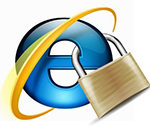 While discussing internet trends, a work colleague said: “have you seen all these blogs; they can say just anything! It’s terrible!” I of course admitted that I too was a blogger, and that I too say just about anything. While there may be problems associated with a democratisation of media, the pros far outweigh the cons.
While discussing internet trends, a work colleague said: “have you seen all these blogs; they can say just anything! It’s terrible!” I of course admitted that I too was a blogger, and that I too say just about anything. While there may be problems associated with a democratisation of media, the pros far outweigh the cons.
As the established media struggles to deal with the transition to online publication, an ever expanding army of bloggers relentlessly pumps out material that was once the exclusive domain of professional journalists. While some of the material may be erroneous, poorly researched, biased, or plagiarised the same indictment could be levelled at many professionals.
Professional journalists are no strangers to bias and have been often guilty of plagiarism or using dubious or misquoted sources. While professional journalists may have more highly developed writing skills than the average blogger, anyone who has watched the ABC TV’s Media Watch program would have chuckled at many examples of journalistic ineptitude and malpractice. Media Watch has highlighted many examples of items masquerading as news which are little more than blatant advertisements. Journalists are also bound by editorial policy and the interests of advertisers and shareholders.
Bloggers of course are influenced by no such constraints. Are the views of a professional journalist any more valid that those of anyone else? While a certain proportion of the blogosphere may include dubious material, there is undoubtedly a great deal that is worthwhile and interesting. Anyone with a connection can now easily publish their views to a mass audience; this would seem the ultimate expression of free speech.
The final responsibility comes down to the user. A vast increase in information also increases the need to use that information wisely, cross reference and read between the lines. In this respect, nothing has really changed; you can’t believe everything you read.
Thursday, April 23, 2009
Blogging: the poison pen
the netnanny state
 The Australian government is planning to introduce internet filtering at the ISP level. This will make the internet up to 87% slower, more expensive, and will accidentally block up to one in 12 legitimate sites, while missing the vast majority of inappropriate content. Anyone who has worked in a government department behind an overly aggressive firewall will know what this is like: incredibly frustrating, inefficient and largely unworkable.
The Australian government is planning to introduce internet filtering at the ISP level. This will make the internet up to 87% slower, more expensive, and will accidentally block up to one in 12 legitimate sites, while missing the vast majority of inappropriate content. Anyone who has worked in a government department behind an overly aggressive firewall will know what this is like: incredibly frustrating, inefficient and largely unworkable.
The government will allow users the opportunity to 'opt out' of the scheme, although they obviously won't have the option to opt out of the slow connections and increased cost. The average user has no desire to view offensive material on the net, but then, definitions of what constitutes offensive material varies widely. (e.g. the recent Bill Henson scandal/fiasco). This draconian proposal by the government is an insult to the average user's intelligence.
The government obviously thinks people are incapable of making responsible decisions for themselves. If they did they might offer users the opportunity to opt in to such a scheme, rather than making them opt out. This is a flagrant and ill conceived attack on civil liberties and personal freedom.
Australian internet connections may soon be like Ned Flander's cable TV: 99 channels and all blocked except the weather... okely dokely? NO!
Sign the getup.org petition to Communications Minister Senator Conroy, against "draconian government restrictions on the internet that will hold back the digital economy and miss the vast majority of unwanted content."
Monday, April 13, 2009
Miss Naked Beauty: Judgement of Gok
 Miss Naked Beauty purports to promote the cause of ‘real women’. It’s contestants are supposedly vying for the opportunity of being ambassadors for ‘natural beauty’ and the idea that a woman doesn’t have to be young and thin to be beautiful; in the winner’s immortal words (in fact, I think all the girls said it) everyone is beautiful. We are invited to believe that the winners of this reality TV contest will form the grass roots of a movement in defiance of the odious fashion industry, which incessantly promotes impossible ideals of feminine beauty.
Miss Naked Beauty purports to promote the cause of ‘real women’. It’s contestants are supposedly vying for the opportunity of being ambassadors for ‘natural beauty’ and the idea that a woman doesn’t have to be young and thin to be beautiful; in the winner’s immortal words (in fact, I think all the girls said it) everyone is beautiful. We are invited to believe that the winners of this reality TV contest will form the grass roots of a movement in defiance of the odious fashion industry, which incessantly promotes impossible ideals of feminine beauty.
Do the women who flock to view this contest, and the millions more who tune in to it on TV really imagine that the fashion industry is going to start showing their latest Spring collection on the Paris catwalks with models that look like the contestants? Miss Naked Beauty is in actual fact just as exploitative as any other beauty contest. The bikini and nude sections which are presented as a means of forcing the contestants to accept their own unadorned ‘natural beauty’ are just an excuse for an exercise in voyeurism.
 After the humiliating process of elimination it’s really quite sad (and really quite pathetic) to see the final two contestants putting their hearts and souls into their final speeches. They truly do seem to believe in the cause that has been so shamelessly sold to them by Channel 4 and the incredibly creepy Gok Wan.
After the humiliating process of elimination it’s really quite sad (and really quite pathetic) to see the final two contestants putting their hearts and souls into their final speeches. They truly do seem to believe in the cause that has been so shamelessly sold to them by Channel 4 and the incredibly creepy Gok Wan.

